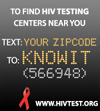|
U.S. Department of Health and Human Services National Institutes of Health National Institute of Diabetes and Digestive and Kidney Diseases (NIDDK) |
Tuesday, October 29, 2008
Contact: Joanne Gallivan |
New Teaching Tools Foster Science and Diabetes Education in Native American Schools
What:
The Diabetes Education in Tribal Schools' (DETS) “Health is Life in Balance" K-12 curriculum will be launched by the National Institute of Diabetes and Digestive and Kidney Diseases (NIDDK) of the National Institutes of Health (NIH), the Indian Health Service (IHS), the Centers for Disease Control and Prevention (CDC) and eight tribal colleges and universities. Also joining the launch are the Tribal Leaders Diabetes Committee and health administrators, educators and providers from approximately 400 Indian Health Service, Tribal and Urban diabetes programs.
Why:
For many years type 2 diabetes has disproportionately affected adults in American Indian and Alaska Native communities. The disease is now affecting native youth at an alarming rate. The science of diabetes and tribal traditions are key components of this first-of-its-kind K-12 curriculum. The purpose of DETS is two-fold: to empower native youth with the knowledge to prevent or delay diabetes in those at risk and to inspire students to pursue careers in health and science.
When:
Wednesday, November 12, 2008
Where:
Smithsonian's National Museum of the American Indian (NMAI) Rooms 4018-4019 4th St. and Independence Avenue S.W. Washington, D.C. 20560
Media Briefing: 11:00 a.m.
Contact: Joanne Gallivan or Joan Chamberlain, 301-496-3583, NIDDKMedia@mail.nih.gov
- Griffin P. Rodgers, MD, MACP, Director, NIDDK/NIH
- Buford Rolin, Chairman, Poarch Band of Creek Indians, Co-Chair, Tribal Leaders Diabetes Committee
- Janet Belcourt, MPH, Director, NIDDK Diabetes Program, Stone Child College, Rocky Boy, MT
- Kelly Acton, MD, MPH, FACP, Director, Division of Diabetes Treatment and Prevention, IHS
- Ann Albright, PhD, RD, Director, Division of Diabetes Translation, CDC
- Lawrence Y.C. Agodoa, MD, FACP, Director, Office of Minority Health Research Coordination, NIDDK/NIH
- Sanford Garfield, PhD, Director, Diabetes Education in Tribal Schools, NIDDK/NIH
Round Dance: 11:30 a.m. - 1:00 p.m.
Contact: Gale Marshall, 828-421-5553, detslaunchadmin@mac.com
A public Round Dance in the NMAI atrium will be sponsored by Haskell Indian Nations University and directed by Alvin and Jonathan Windy Boy (Chippewa Cree-Rocky Boy, MT).
"Honoring Native Health Warriors" Walk: 2:30 p.m. - 4:00 p.m.
The Association of American Indian Physicians and the National Indian Health Board are hosting "Honoring Native Health Warriors." The walk starts on the Northeast side of the Washington Monument and ends on the National Mall at the Corner of Jefferson Drive and 3rd Street. The program includes Gerald Hill, MD, Board President, Association of American Indian Physicians, and Rocco Clark, Yakama Nation, "Dance Away Diabetes" demonstration.
NIDDK conducts and supports research in diabetes and other endocrine and metabolic diseases; digestive diseases, nutrition, and obesity; and kidney, urologic, and hematologic diseases. Spanning the full spectrum of medicine and afflicting people of all ages and ethnic groups, these diseases encompass some of the most common, severe, and disabling conditions affecting Americans. For more information about NIDDK and its programs, see www.niddk.nih.gov.


